How to start your Solid Waste Management Business
Start your Solid Waste Management Business
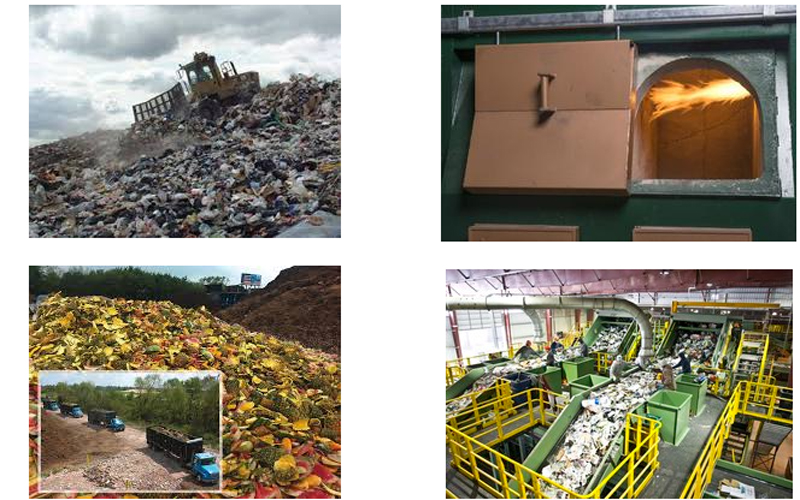
A solid waste management businessis a comprehensive process that revolves around the efficient collection,
handling, treatment and disposal of various types of solid waste. This encompasses the entire journey from
collection to treatment and, ultimately, proper disposal. The process commences with the systematic gathering
of solid waste from diverse sources, including households, industries, and commercial establishments.
Once collected, the waste is transported to waste collection facilities for treatment and analysis. This treatment
phase is critical as it encompasses processes like recycling, composting, incineration, or controlled landfilling,
each chosen based on the waste's characteristics and potential impact on the environment.The collected wastes
are disposed of in un-attended landfills, and it is a long way to see that the entire waste collected by a city or
town is processed and only remnants are disposed of in landfills. In fact, remnants classified as “inert / non-recyclable
have to be converted into other useable products so to realise the vision and mission of achieving ‘Zero’ landfilling.
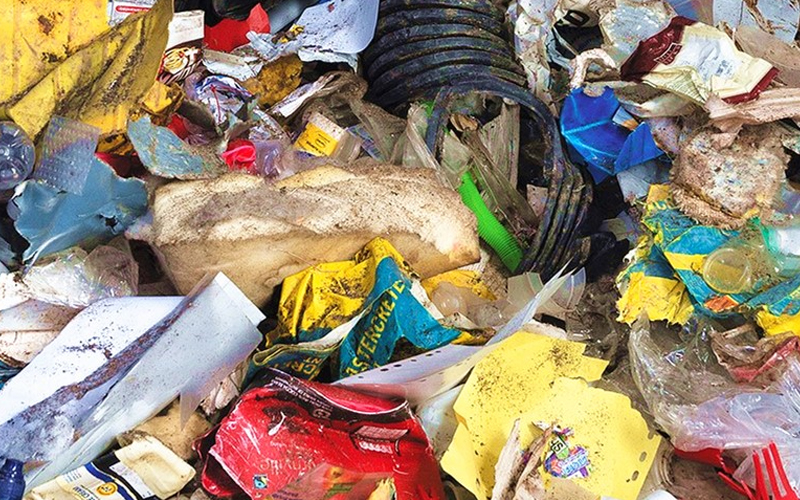
So, the next question that comes to mind is where business opportunities lie in all this. The collection and transportation
is mostly by municipalities. Due to the overburdened municipalities and the massive amount of trash municipal waste
being generated, neither the waste is being properly segregated and treated, and everything is getting disposed of in
landfills. This has led to a huge pile of legacy waste which also requires treatment and disposal. This is where the scope lies.
How to start a Waste Management Business?
Sage 1: Identifying the category of Solid Waste Management Business
The sources of different solid waste are as follows:
Municipal solid waste: Solid waste generated by households.
Industrial waste: Solid waste emanates from diverse industrial processes.
Agricultural Solid Waste: Solid waste is produced within agricultural activities.
Non-biodegradable waste: Items like plastics, glass, metals, electronic waste, and other Plastic Waste/E-Waste.
Waste of a medical nature: Waste stemming from construction projects and sewage treatment residuals.
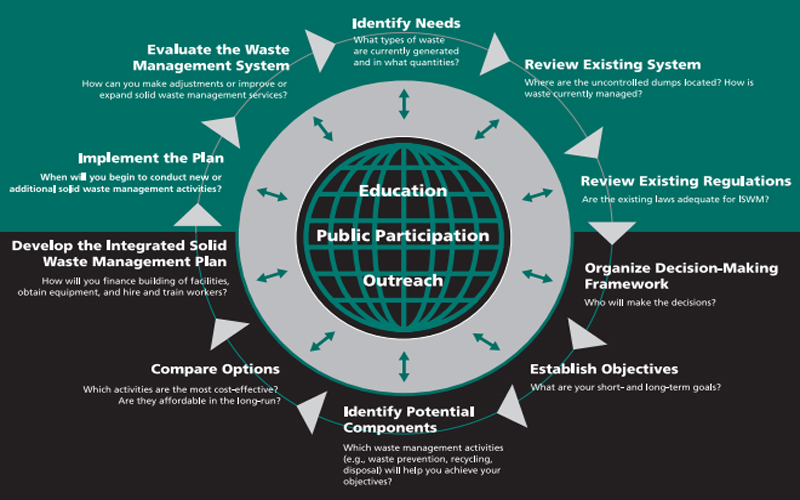
Stage 2: Identifying the Scope of your chosen Solid Waste Management Business
In the 21st century, as undergoes rapid urbanisation, industrial growth, and a surge in population, effective solid waste
management emerges as a pivotal challenge for both state governments and local municipal bodies.
Solid waste management plays a critical role in safeguarding the health and overall quality of life of urban residents.
Particularly, the urban underprivileged population is at heightened risk, residing in informal settlements where access to
proper solid waste collection is limited or absent, often near open landfills.
Since the inception of this campaign, the notion of waste management has gained considerable traction.
Prescribed processing and disposal of bio-degradable waste through on-site composting/bio-methanation,
with residual waste management directed by local authorities.
The mandate for developers of SEZs, industrial estates, and industrial parks to allocate a minimum of 5%
of the total plot area for recovery and recycling facilities.
Stipulation for manufacturers of disposable items like tin, glass, plastics, or brands introducing such products
to provide financial support to local authorities for establishing waste management systems.
Stipulation for industrial units located within 100 km of solid waste-based RDF plants to decide within 6 months
from rule notification whether to replace at least 5% of their fuel requirement with RDF.
Inclusion of special provisions for solid waste management in hilly regions, addressing unique challenges
in these areas.
The protocols vary based on solid waste management must be based on the origin of solid waste, which can
be categorised into the following:
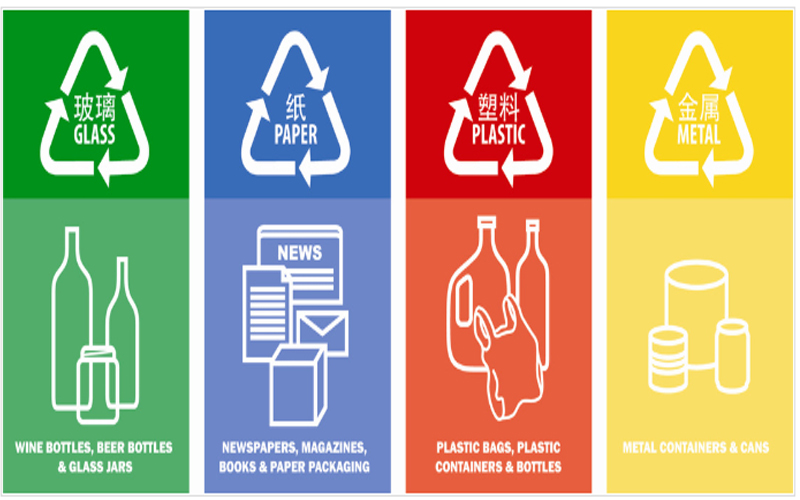
Municipal Solid Waste.
Hazardous Solid Waste.
The category of municipal solid waste can be further segmented into biodegradable, recyclable, and hazardous
domestic waste. Biodegradable waste encompasses decomposing food, vegetable peels, and predominantly
moist kitchen refuse. Recyclable waste includes plastics, while hazardous waste encompasses items like bulbs,
batteries, and more.
Waste emerging from industries such as chemical factories, along with medical waste from hospitals, qualifies
as Hazardous Solid Waste. Their proper disposal necessitates specialised settings. Irrespective of the location,
effective solid waste management holds immense significance in ensuring the safe elimination of waste materials.
This, in turn, serves to mitigate environmental contamination and pre-empt potential health risks.
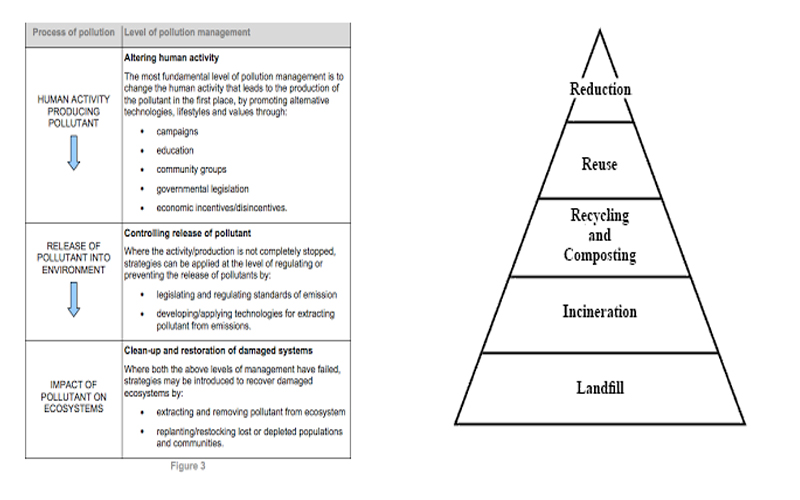
Among the methods of waste disposal, landfills emerge as the most commonly utilised. Contemporary landfills
are strategically designed, considering factors such as environmental impact and waste composition. These
measures aim to curtail pollution levels and minimise health hazards.
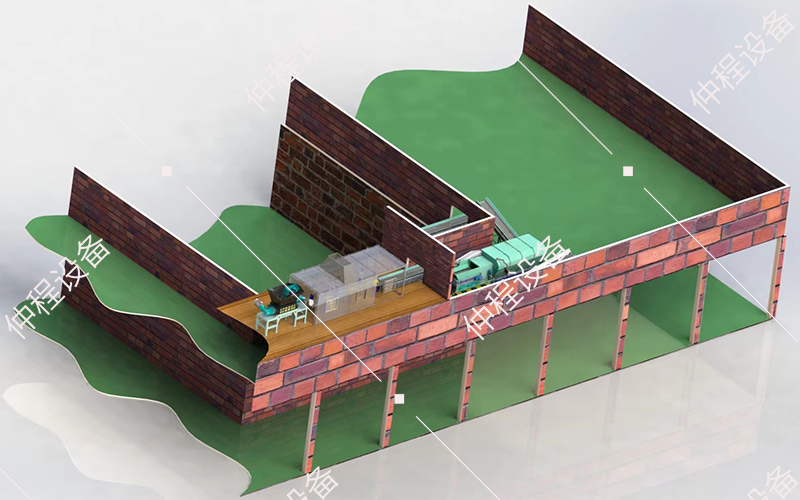
Applicability of SWM Regulations on Solid Waste Management Business
The applicability of these regulations extends to a diverse range of entities, including:
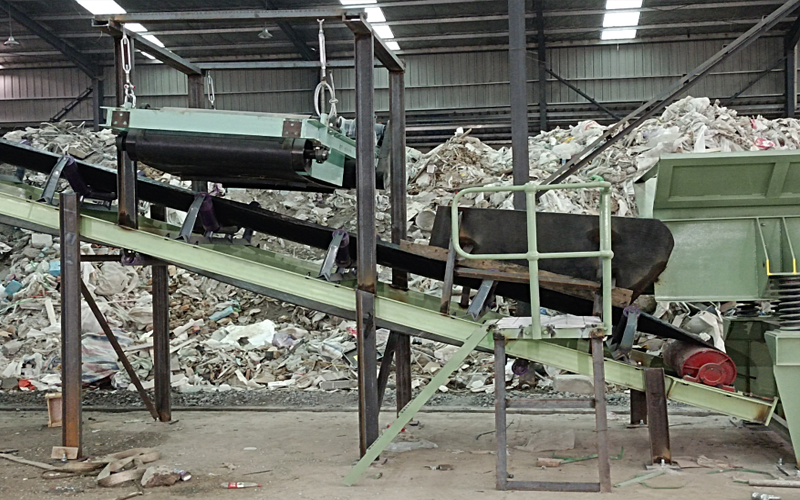
Urban local bodies
Census towns as designated by the registrar general and census commissioner
Notified areas
Notified industrial townships
Areas under the jurisdiction of Indian Railways
Airports
Ports
Defence establishments
Special Economic Zones (SEZs)
State and central government organisations
Locations of pilgrimage, religious significance, and historical importance
Domestic, educational, commercial, and other non-residential solid waste generators within these areas.
Exclusions comprise specific waste categories covered by distinct regulations framed under the Environment (Protection) Act of 1986.
These excluded categories involve industrial waste, hazardous waste, chemicals, biomedical waste, electronic waste (e-waste),
lead-acid batteries, and radioactive waste. These separately governed waste types are outside the scope of the present regulations.
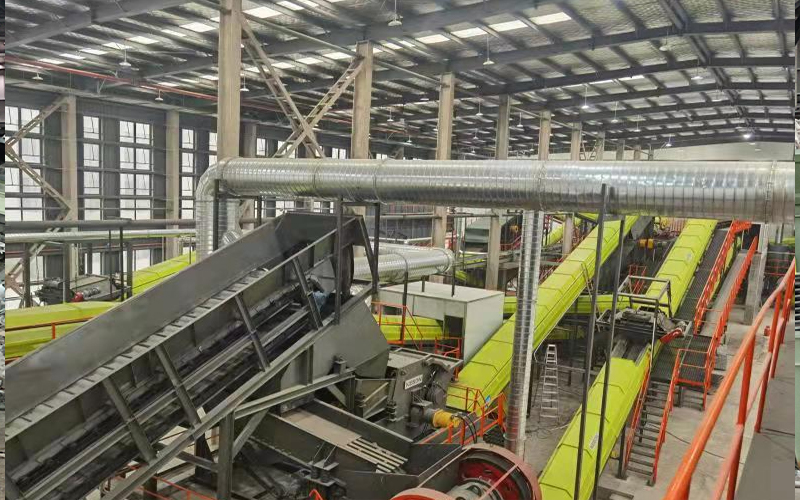
-
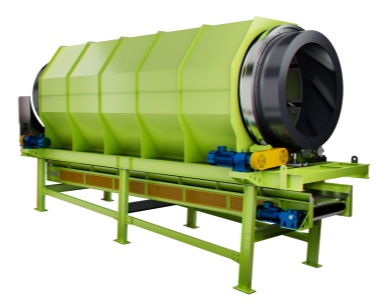 Trommel screenTrommel screen, also known as drum screens, are widely used in various industries for sorting and separating materials.Get Quote
Trommel screenTrommel screen, also known as drum screens, are widely used in various industries for sorting and separating materials.Get Quote -
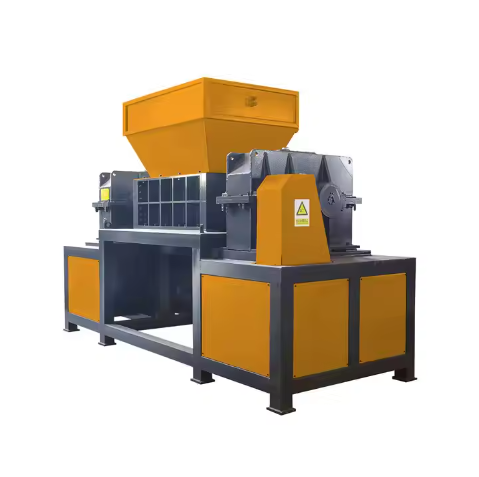 Crop straw double shaft shreddApplications:Biomass Energy Production: Shredded straw can be used as a feedstock for bioenergy plants to produce electricity or heat.Livestock Feed: Reduced-si...Get Quote
Crop straw double shaft shreddApplications:Biomass Energy Production: Shredded straw can be used as a feedstock for bioenergy plants to produce electricity or heat.Livestock Feed: Reduced-si...Get Quote -
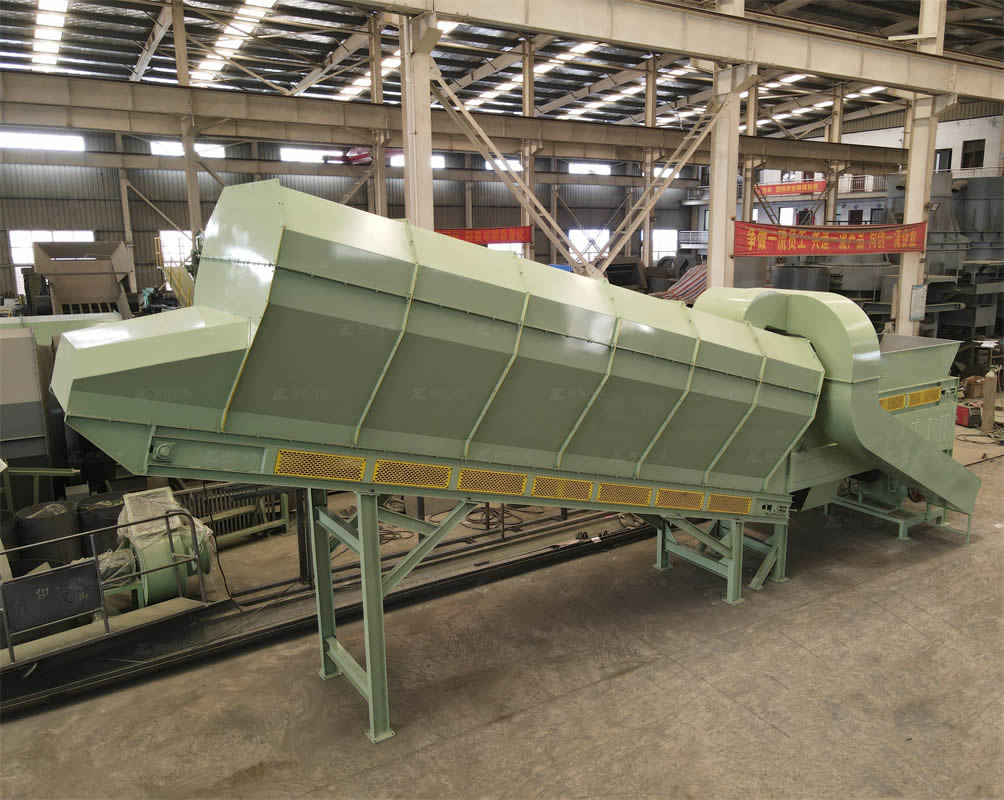 Zhongcheng Air Drum SeparatorAir drum separators effectively separate lightweight materials (e.g., plastics, paper) from heavier materials (e.g., metals, glass). This high efficiency is cru...Get Quote
Zhongcheng Air Drum SeparatorAir drum separators effectively separate lightweight materials (e.g., plastics, paper) from heavier materials (e.g., metals, glass). This high efficiency is cru...Get Quote
-
2023-01-12Waste FeederWaste feeder was specially designed to optimize municipal solid waste sorting systems. The Drum Feeder ensures that your sorting system, baler or shredder has a...
-
2023-01-12Conveyor BeltGarbage conveyor/Trash conveyor belt system is a processing line to classify paper, plastic, metal, glass, and organic matter and realize the recycling of rubb...
-
2024-07-09Recycling Balers-Safe,Easy-To-Use and affordableThe operating principle of a strapping machine primarily involves the following steps:1.Item Positioning:Firstly, the item to be strapped must be placed accurat...
-
2024-05-18Spring Cone CrusherSpring cone crushers are generally used in the medium and fine crushing links of mine crushing, and are mainly used in the secondary crushing and tertiary crush...
-
2024-07-16Twin-shaft shredders: ideal for efficient processing of waste and recycling materialsA double-shaft shredder is a mechanical device used to process waste and recycle materials. Its main feature is that it has two rotating shafts with serrated bl...



